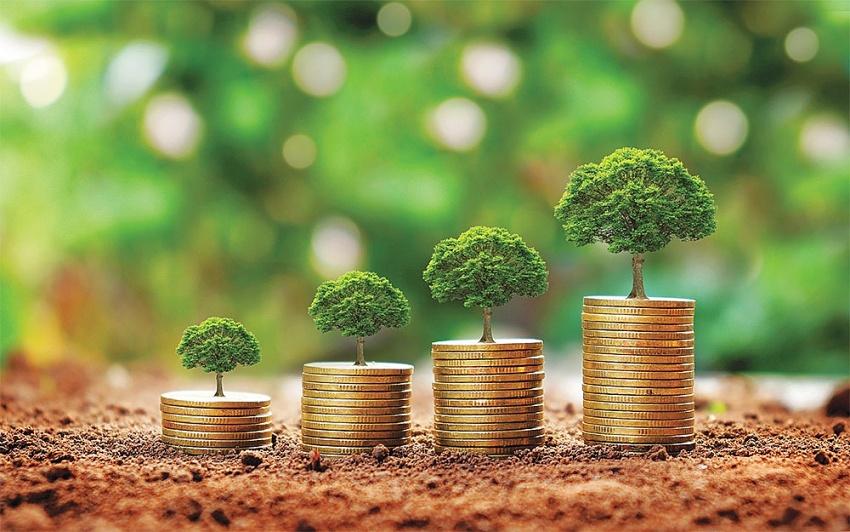Index seeks to boost green behaviour
 |
| Index seeks to boost green behaviour |
At last week’s launch ceremony of the 2023 Provincial Competitiveness Index and Provincial Green Index (PGI), Edmund Malesky, director of Duke University Centre for International Development and leader of the PGI Research Team, said that Vietnam’s cities and provinces were making efforts to combat pollution and environmental accidents.
“They are designing and enforcing regulations that ensure compliance without creating overwhelming burdens; providing appropriate guidance to firms on green operations and environmentally friendly procurement; and incentivising green operations through targeted incentives and subsidy programmes,” Malesky explained.
Localities that do well on leadership and assistance emulate green behaviour in their own actions and encourage green behaviour by firms in their province, Malesky said. “They give green businesses priority when contracting out goods and services and are willing to pay a premium in those contracts to incentivise the upgrading of local businesses.”
Local guidance or regulations encouraging local businesses to spend resources on green upgrades include digitalising paperwork, installing energy meters and conservation technology, minimising the use of plastic, and training employees and managers. “Green leadership and assistance aids reductions in pollution,” he added. “Provinces have provided incentives and support, encouraged the entry and transition to green business through incentive programmes and assistance on capacity training; provided guidance and advisory services, and have sizeable shares of businesses in green industries.”
Green capital flows are changing the quality of foreign investment in Ho Chi Minh City, which ranked fifth in the PGI 2023, enabling the city to embark on the journey of a zero-carbon footprint. The ability to ensure the effectiveness of these capital flows is increasing, through attractive policies on infrastructure, reforming administrative procedures, and improving the investment environment.
Han Thanh Hong, general director at Pepperl+Fuchs Vietnam, a German manufacturer of electronic equipment and components located in Ho Chi Minh City, said that the group invests about $3-4 billion in new technologies and machinery every year, and some of that is transferred to Vietnam.
“Vietnam will be a major target of the group by deploying new digital platforms, producing strategic products in the time coming. We aim to reduce greenhouse emissions by 50 per cent, increase renewable energy by 60 per cent in 2030, and provide more employee benefits,” Hong said.
Alexander Ziehe, chairman of the German Business Association in Vietnam, said, “To increase the attraction of capital flows to green projects in Vietnam, we propose a tax reduction policy for energy-saving machinery and equipment, especially, financial incentives for green technologies, and green initiatives from private sector are needed to encourage sustainable practices and entice investment in clean energy.”
The trend of sustainable development enables many localities to refuse projects that do not have enough green potential.
Paper packaging manufacturer ChengLoong Binh Duong Paper Company would like to build a factory in the southern province of Binh Duong’s My Phuoc Industrial Park. The local government, ranking 22nd in PGI 2023, has asked businesses to produce and consume under a circular economy model by collecting scrap paper for remanufacturing in green and low-carbon production processes to make green packaging material.
The company has spent more than $1 billion carrying out the greening process. General director Wu Jung Pin said, “Along with the green consumption trend, we have been making efforts to do green manufacturing following the circular economy so that our products meet the greening requirements of the market and customers.”
The northern port city of Haiphong – ranking seventh in PGI 2023 – identifies the theme of pioneering and green transformation. Of these, green growth tasks focus on four main pillars: green industrial and economic zones, seaports and logistics, the tech industry, and commercial travel.
“The implementation of Haiphong’s green transformation strategy is to focus on these pillars, thereby spreading and creating attraction for the comprehensive development of other socioeconomic fields of the city,” said Le Anh Quan, Vice Chairman of Haiphong People’s Committee.
However, Malesky of the PGI Resarch Team pointed out some challenges to green transition, such as market incentives. While provinces might design and implement strong policies within their borders, they can do little about pollution and environmental risks caused by their neighbours. “Cities and provinces with business populations facing consumer pressure to make green upgrades have a far easier time excelling on the green transition process than others. Ultimately, the guiding light for businesses is their bottom line,” he said.
The Vietnamese government and international donors can assist local green governance by helping local leaders overcome resource constrains and capacity deficits. Regulations, guidance and training programmes are especially important, he added.
“Businesses will truly be motivated to take on expensive operational changes when the market rewards this behaviour. Educational programmes can assist Vietnamese consumers in understanding the importance of environmental upgrading, encouraging them to reward green businesses and hold dirty businesses accountable for contributing to pollution and environmental degradation,” he said.
 | Vietnam eyes transition to green production for sustainable value Economic sectors, localities and businesses should be considered the drivers of the nation's green growth and sustainable development strategy, experts have said. |
 | Businesses gain benefits from green production transition Conversion to green production appears to be a compulsory requirement for manufacturers who want to enhance their competitive edge and drive profits. |
What the stars mean:
★ Poor ★ ★ Promising ★★★ Good ★★★★ Very good ★★★★★ Exceptional
Related Contents
Latest News
More News
- Hermes joins Long Thanh cargo terminal development (February 04, 2026 | 15:59)
- SCG enhances production and distribution in Vietnam (February 04, 2026 | 08:00)
- UNIVACCO strengthens Asia expansion with Vietnam facility (February 03, 2026 | 08:00)
- Cai Mep Ha Port project wins approval with $1.95bn investment (February 02, 2026 | 16:17)
- Repositioning Vietnam in Asia’s manufacturing race (February 02, 2026 | 16:00)
- Manufacturing growth remains solid in early 2026 (February 02, 2026 | 15:28)
- Navigating venture capital trends across the continent (February 02, 2026 | 14:00)
- Motivations to achieve high growth (February 02, 2026 | 11:00)
- Capacity and regulations among British areas of expertise in IFCs (February 02, 2026 | 09:09)
- Transition underway in German investment across Vietnam (February 02, 2026 | 08:00)

 Tag:
Tag:


















 Mobile Version
Mobile Version